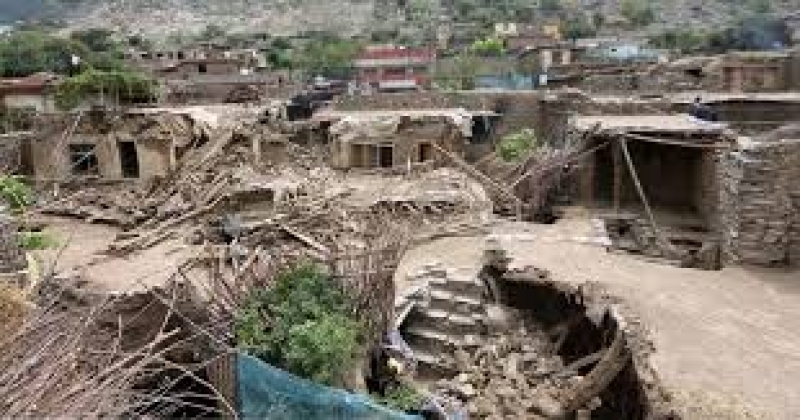- OIC Hails Belgian Declaration of Intent to Recognize Palestinian State |
- Bomb blast kills 15 near political rally in Pakistan |
- Corruption Persists Despite Uprising, TI Chairman Warns |
- Gaza Attacks Intensify as Disabled, Hungry Civilians Suffer |
- Stock indices edge up in first hour at DSE, CSE |
Afghanistan earthquake death toll tops 1,400

The death toll from a devastating earthquake that struck eastern Afghanistan has surpassed 1,400, with over 3,000 people injured, according to Taliban government spokesperson Zabihullah Mujahid, who confirmed the figures on platform X (formerly Twitter).
Rescue operations are underway in what UN officials described as a “race against time” to reach remote, mountainous areas worst hit by Sunday’s 6.0 magnitude quake. Entire villages were flattened, and many residents remain trapped under the debris of mud and wood homes that collapsed under the force of the tremor.
“The people of Afghanistan are enduring multiple crises, and their resilience is at a breaking point,” said Indrika Ratwatte, the UN’s Resident Coordinator in Afghanistan. He urged the international community to step up urgently, stressing that the situation involves life-or-death decisions.
This is the third major earthquake to hit Afghanistan since the Taliban took control in 2021. The country is already grappling with severe aid cuts, economic hardship, and a surge in returnees from neighboring Iran and Pakistan.
Ratwatte noted that many of the homes, made from fragile materials, crumbled during the quake while residents were asleep—causing a high casualty rate that could rise further in the coming days.
Despite international reluctance to engage directly with the Taliban government—recognized only by Russia—the regime has appealed for global assistance.
Aid efforts have been hampered by limited funding, global donor fatigue, and concerns over Taliban policies, especially restrictions on Afghan women and girls, including a ban on their work with NGOs. Earlier this year, the U.S. significantly cut aid to Afghanistan, citing fears of funds benefiting the Taliban.
Kate Carey, Deputy Head of the UN’s humanitarian coordination office in Afghanistan, said more than 420 health facilities have closed or suspended services due to funding shortfalls, including 80 in the eastern region affected by the quake, reports UNB.
“As a result, the remaining health centers are overcrowded, under-resourced, and located farther from quake-hit communities—creating a dangerous gap in emergency trauma care during the critical first 24 to 72 hours,” Carey said.

